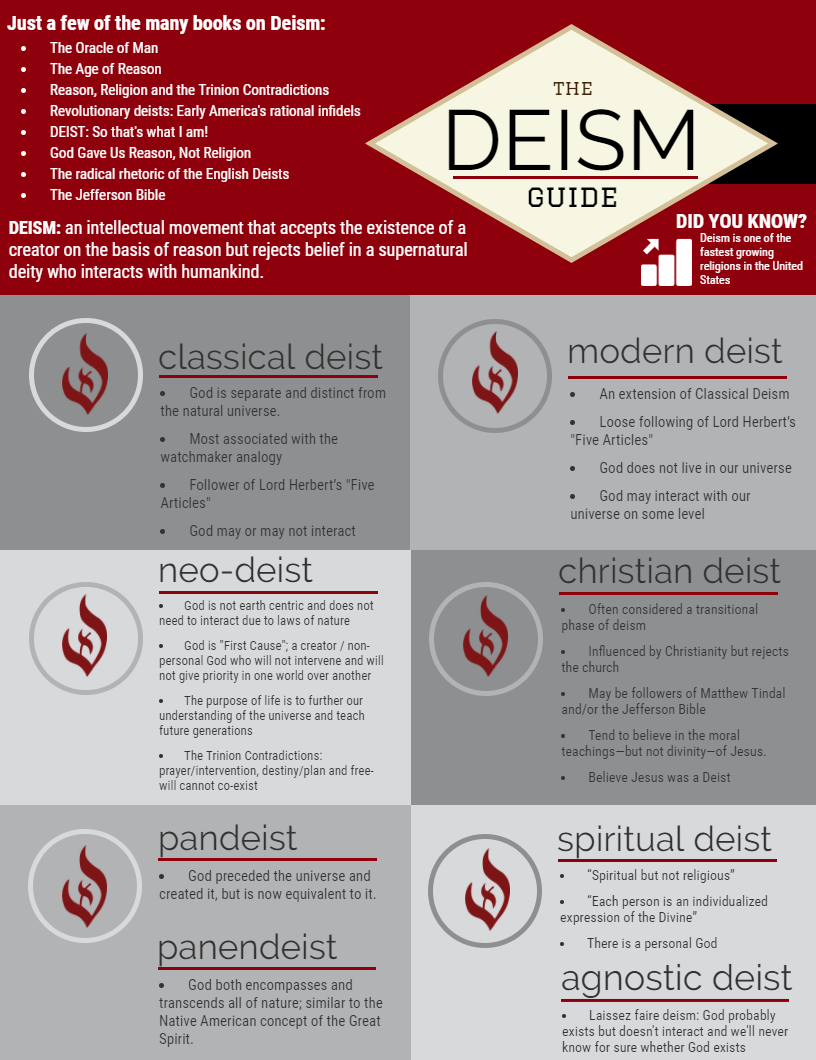There are several different forms of deism. While each sect shares much of the same foundation, subtle differences tend to be substantial in the grand scheme of things. What follows is a broad overview of the various types of Deism and some of what makes each sect a little different.
“There is a happiness in Deism, when rightly understood, that is not to be found in any other system of religion.”
Thomas Paine

As you can see, there are several important differences between the various sects. This is not to say that one is better or worse than the other. However, the listing does demonstrate that Deists will find themselves on various paths and gravitate to their specific sect accordingly. Furthermore, it should be noted that many Deists may shift from one sect to another as their understanding or research advances.
With that being said, it should also be noted that Deists usually do not proselytize (attempt to recruit or convert others). Most Deists find their own path through research and examination. This is pretty much universal throughout the Deist community. It is considered the “religion reserved for the intellectuals” for a reason.
Finally, it should also be noted that these are not “strict” definitions of each sect. Instead, they are generalizations, an overview, as said by many of them within that sect. More variations likely exist.
“I have always strenuously supported the right of every man to his own opinion, however different that opinion might be to mine. He who denies to another this right, makes a slave of himself to his present opinion, because he precludes himself the right of changing it.”
Thomas Paine
If you are interested in learning more about NeoDeism, please review the article titled “How is Neo-Deism Different from Classical Deism.”
